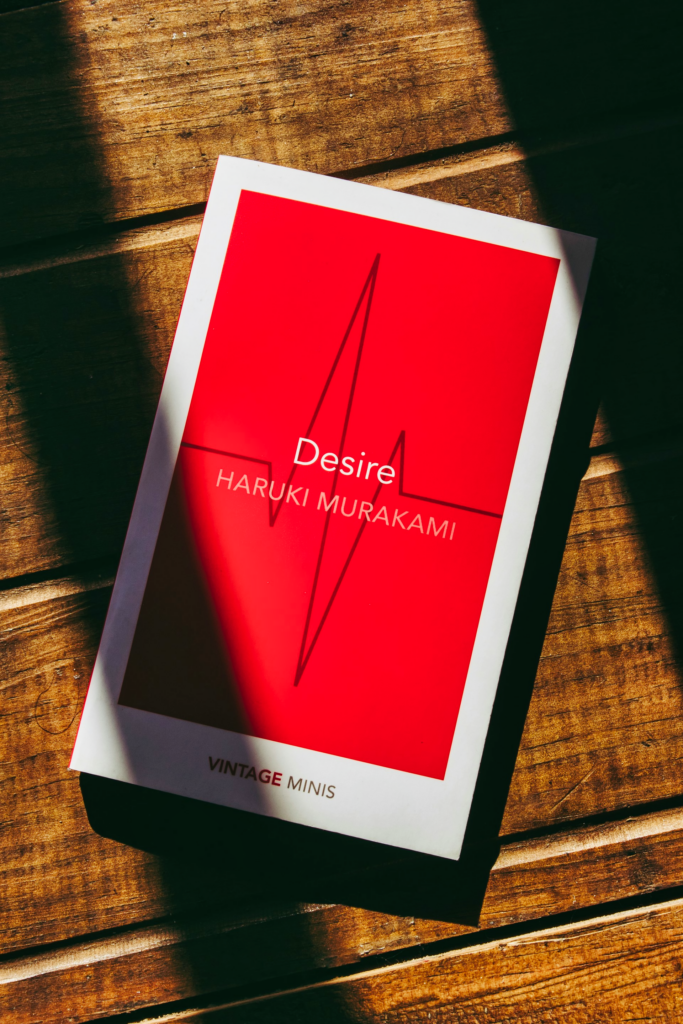Even if you’re not a bookworm, you’ve probably heard of Haruki Murakami at some point. His books are international bestsellers that captivate a worldwide audience across various cultures and languages thanks to how universally relatable his characters and their inner selves are. From Norwegian Wood to 1Q84, his novels have found success across many cultures and languages which is not a feat many authors get to boast about.
Murakami’s been a literary giant for nearly 5 decades so it’s only fair we cover his incredible career and what’s made him so famous right? After all, you don’t accidentally become a world-renown author purely on luck.
Early life and influences
Born on January 12, 1949, in Kyoto, Murakami grew up in a traditional Japanese household with a strong focus on literature and music. His father, a former Shinto priest and Japanese literature teacher along with his mother (also a teacher), instilled in him a love for reading and storytelling during childhood. Murakami’s early influences ranged from Japanese folklore to Western literature (something we see weaved in his current works), including the works of Franz Kafka, Fyodor Dostoevsky, and Gabriel García Márquez. This unusual mix of cultural and literary influences are what would later shape his distinctive writing style readers know and love.
Beginnings of a literary career
Murakami’s writing career officially began in the 1970s, when he started writing and publishing short stories while running a jazz club in Tokyo1. His debut novel, Hear the Wind Sing (published in 1979), was a surprise success, and he went on to publish several sequels to it throughout the 1980s, including Pinball, 1973 (ironically published in 1980) and A Wild Sheep Chase (1982). These 3 novels forming the trilogy of the rat, showcased Murakami’s unique blend of magical realism, and philosophical introspection, which would become his signature writing style.
The success of these early publications catapulted him from a hobby writer working on his passion to a full-time writer.
International acclaim

Tough plenty successful domestically, he wouldn’t be internationally known until the publication of Norwegian Wood in 1987. This coming of age novel, set in 1960s Tokyo, explored themes of love, loss, and identity which resonated with international readers. The book’s success propelled Murakami onto the international literary scene, and he soon became a household name. Following novels, such as The Wind-Up Bird Chronicle and Kafka on the Shore, cemented him as a cornerstone author of contemporary Japanese literature.
Writing style and themes
Murakami’s works often explore the human condition, delving into themes of identity, alienation and the search for meaning. His characters are often outsiders, rebels and misfits who navigate surreal landscapes and encounter a cast of eccentric figures from talking cats to mysterious women.
Recurring themes include:
- Strong storytelling: Murakami’s novels often blur the lines between reality and fiction which is a cool concept but the way he immerses you in the universe and helps you relate to them is masterful.
- The search for identity: His characters’ quests for self-discovery and belonging are a powerful relatable aspect for the reader on our shared human experience.
- The quest for human connection: His novels often explore the complexities and challenges of dealing with relationships, love and friendship. Something we’re all too familiar with.
- Jazz and music: His love of jazz and music is often shown in the lyrical quality of his prose and the frequent references to music in his works. This makes sense considering he ran a jazz club prior to becoming an author.
- Blending the East and West: Murakami’s works frequently blend Japanese culture with Western influences, reflecting his own experiences having read a wide repertoire of literature. Being a reader of wide ranges of topics, he draws inspiration from Japanese literature, folklore, and mythology, as well as Western literary traditions, including surrealism and magical realism.
- Philosophy and psychology: His novels often engage with philosophical and psychological concepts, such as existentialism, absurdism, and the human condition.
One thing I believe Murakami does exceptionally well is create universes with the idea that normal is weird and weird is normal. Taking the reader through the protagonist’s quest to find their place in the world, something most of us relate all too well.
Legacy and impact
Haruki Murakami’s impact on contemporary literature might not be talked about much but it’s evident if you’re looking. From David Mitchell to Jennifer Egan, his unique writing style, blending elements of magical realism, humor, and philosophical introspection, has influenced generations of writers worldwide to try their hand at weaving multiple deep & complex aspects of the human condition into a novel. Many of them copycats, but that’s how you know you’re doing good work. His novels have been translated into over 50 languages, and he’s decorated by numerous awards, including the Franz Kafka Prize, the Jerusalem Prize, and the Hans Christian Andersen Literature Award.
When looking back at Murakami’s work as a whole, you start to see that his worldbuilding isn’t just his imagination but an attempt at reflecting to us our complex desires and need to find meaning in the world. Through his writing, Murakami invites us to explore our own shortcomings at navigating the world around us. Feelings, relationships and desires are oh, so difficult to balance yet carving a place for ourselves within each of those aspects are what we all yearn for.
Closing thoughts
I’m not here to sell you on reading Haruki Murakami novels, it’s not like he’s my favorite author or anything. But I do believe there’s value in studying the greats even when you disagree or don’t see the greatness. Murakami’s undeniably made a major impact on the modern writing styles of other authors today and deserves recognition for it.
Especially if you’re an author yourself. Not many other renown authors blend complex emotional rides and philosophical topics in an easy-to-read manner like he does. Making the reading experience rewarding at different levels of understanding rather than trying to sound smarter than you.
And his story isn’t over yet, he has more life ahead of him with another generation or two to influence through his unique style of storytelling.
FAQ
What is Haruki Murakami known for?
Haruki Murakami is internationally known as an author for his best-selling books Norwegian Wood, 1Q84, Kafka on the Shore and many more.
What are Haruki Murakami books about?
Haruki Murakami writes multiple genres of books but he tends to explore fictional modern scenarios with a twist of surrealism that attempt to explore love, loss and identity.
Are Murakami books easy to read?
Murakami’s books are best described as straightforward, relatable and emotional. Though they often leave you thinking and contain obscure symbolism, the core of the books are written in an easy to understand manner.
Why do people love Haruki Murakami?
A simplified explanation (or an attempt at it) is that his books have a unique blend of modern magical realism with philosophical insights and a deep exploration of human emotions which makes you feel rewarded having grappled with difficult themes of the human condition. You don’t need to be a high brow intellectual to appreciate his writing but you’ll gleam more details from his writings if you are.
Is Norwegian Wood worth reading?
If you’d like a coming of age story that blends western influences with Japanese narratives, you should check it out. It’s a beautifully written book that’s introduced many western readers to Japanese literature so you wouldn’t lose out by reading it.
Are Haruki and Takashi Murakami related?
No, Takashi Murakami only shares a last name with Haruki Murakami.
- Sadly we were unable to find which Jazz club he ran. https://archive.is/F2pm ↩︎





Trending now